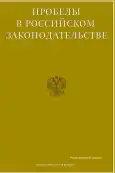Актуальные вопросы обучения сотрудников органов внутренних дел тактическим особенностям силового задержания правонарушителей
- Авторы: Афов А.Х.1
-
Учреждения:
- Северо-Кавказский институт повышения квалификации (филиал) Краснодарского университета МВД России
- Выпуск: Том 15, № 4 (2022)
- Страницы: 69-73
- Раздел: Статьи
- URL: https://journals.eco-vector.com/2072-3164/article/view/531549
- ID: 531549
Цитировать
Аннотация
В данной статье мы изучили вопросы обучения сотрудников ОВД тактическим особенностям силового задержания правонарушителей. Установили, что для произведения силового задержания сотруднику необходимо обладать исчерпывающими знаниями боевых приёмов борьбы, а также высоким уровнем общей и специальной физической подготовки. Указанные качества развиваются в процессе обучения в образовательных организациях МВД России. Обучение приемам силового задержания является составной частью физической подготовки сотрудника ОВД. В процессе физической подготовки основной задачей является подготовка сотрудника к работе в экстремальных ситуациях, укрепление здоровья сотрудника, обучение всем необходимым приемам борьбы с правонарушителем. Реализуя данную деятельность обучающего процесса, сотрудники обучаются навыкам противодействия правонарушителям в различных ситуациях, в том числе при необходимости ведения с ними рукопашного боя. Практика правоохранительной деятельности свидетельствует о возникновении ситуаций, когда сотрудник с правонарушителем вступают в рукопашный бой и задача сотрудника подавить агрессию в свой адрес, в т.ч. мерами физического воздействия, если несиловые методы воздействия не обеспечили нужного результата. Применение мер физического воздействия и приёмов силового задержания являются ответными действиями в сторону правонарушителя напавшего на сотрудника ОВД или оказавшего сопротивление его законным требованиям. Сделан вывод о том, что важным аспектом силового задержания является разработка специализированной методики обучения сотрудников со слабой физической подготовкой и подбора для них индивидуальной тренировочной программы. При этом, обучение боевым приёмам борьбы является недостаточной мерой, поскольку еще необходима правовая подготовка в контексте законности применения физической силы и боевых приемов борьбы только в крайних случаях и ситуациях которые напрямую угрожают здоровью и жизни сотрудника ОВД либо мирных граждан.
Полный текст
Об авторах
Алихан Хажмуратович Афов
Северо-Кавказский институт повышения квалификации (филиал) Краснодарского университета МВД России
Email: kodzokov.aznaur@bk.ru
канд. пед. наук, капитан полиции, старший преподаватель кафедры физической подготовки Нальчик, КБР, Россия
Список литературы
- Федеральный закон «О полиции» от 07.02.2011 № 3-ФЗ [Электронный ресурс] // Режим доступа: http://www.consultant.ru/document/cons_doc_LAW_110165/ (дата обращения 14.04.2022).
- Герасимов И.В. Методические аспекты развития силовых способностей сотрудников ОВД // Научный вестник Орловского юридического института МВД России имени В. В. Лукьянова. 2016. № 3 (68). С. 136-139.
- Герасимов И.В. Методические основы силовой тренировки // Наука-2020. 2018. № 1-1 (17). С. 22-31.
- Губжоков А.Х. Влияние физической подготовки на физическое состояние сотрудников органов внутренних дел Российской Федерации // Педагогический журнал. 2018. Т. 8. № 5A. С. 87-93.
- Дадов А.В. Эффективность обучения сотрудников полиции применению физического воздействия // Образование. Наука. Научные кадры. 2020. № 2. С. 210-212.
- Мешев И.Х. Методика подбора упражнений для развития силовой выносливости в практике физической подготовки сотрудников ОВД // Успехи современной науки. 2017. Т. 1. № 1. С. 93-95.
- Сокуренко В.С. Использование метода круговой тренировки для совершенствования силовой выносливости сотрудников органов внутренних дел // Научно-методический электронный журнал Концепт. 2014. № T20. С. 3666-3670.
- Струганов С. М., Гальцев С. А., Гаврилов Д. А. Физические качества как основополагающие показатели формирования профессионально-прикладных умений и навыков курсантов образовательных организаций системы МВД России и сотрудников силовых ведомств // Правоохранительные органы: теория и практика. 2015. № 2. С. 203-206.
- Черкесов Р.М. Средства и методы специальной силовой подготовки единоборцев // Образование. Наука. Научные кадры. 2019. № 1. С. 206-208.
- Черкесов Р.М. Использование метода круговой тренировки для развития силовой выносливости и ее роль в общем функциональном состоянии слушателей образовательных организаций МВД России // Пробелы в российском законодательстве. 2020. Т. 13. № 4. С. 196-199.
- Ярославский М.А. Цели и средства функциональной тренировки // В сборнике: Физическое воспитание и спорт: актуальные вопросы теории и практики сборник материалов Всероссийской научно-практической конференции. 2018. С. 299-304.
Дополнительные файлы











